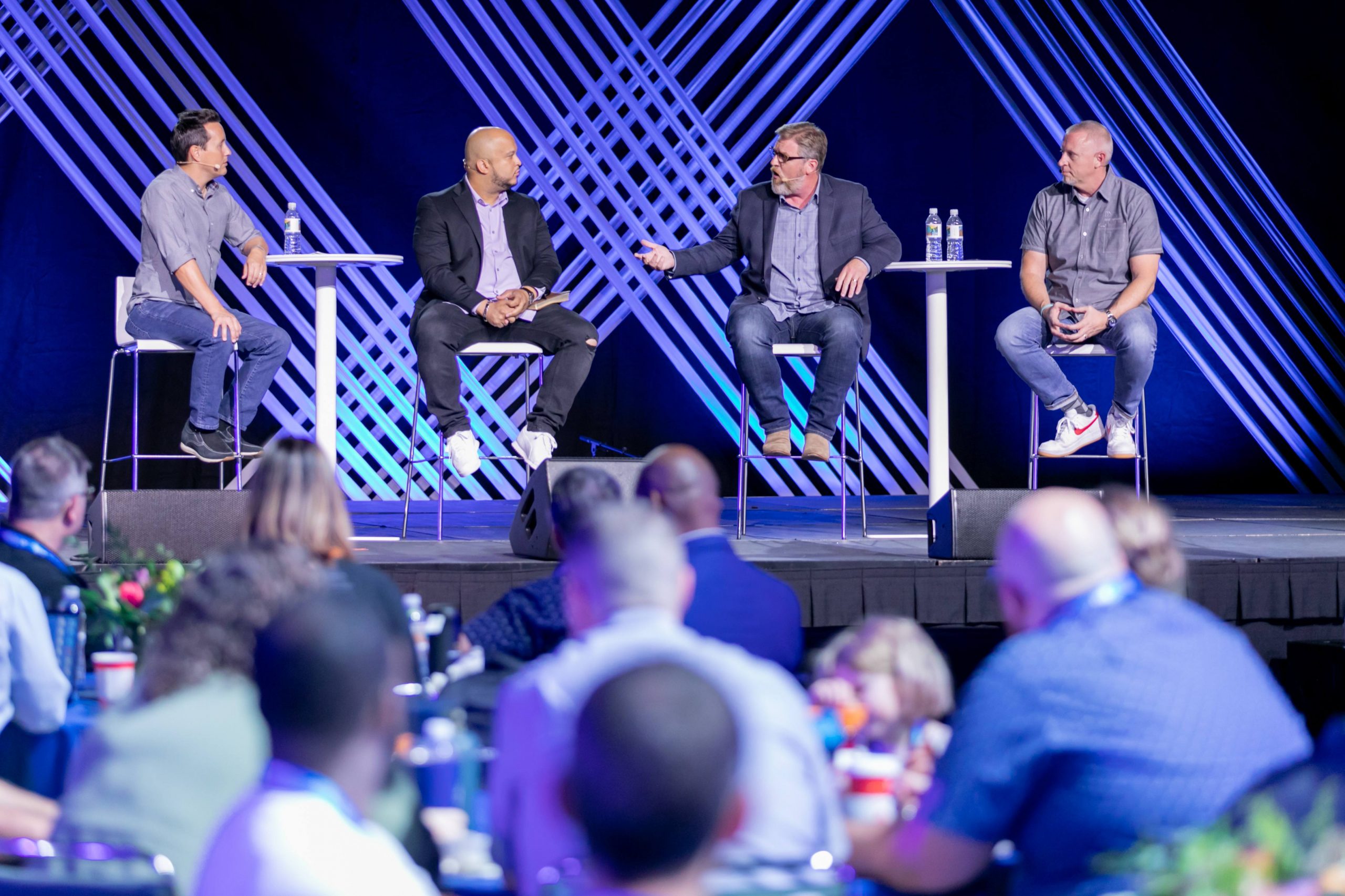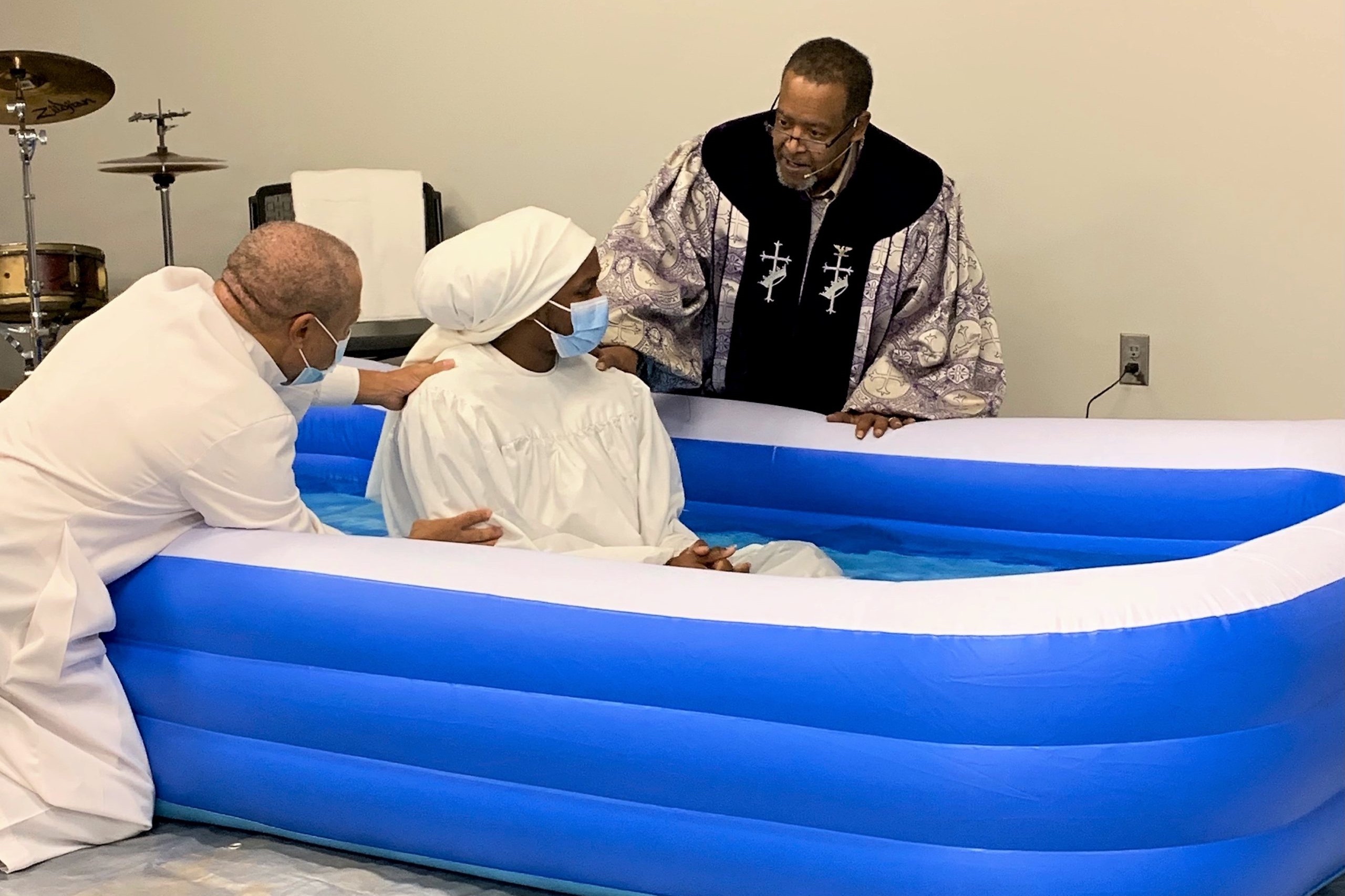
“Multiplication for Movement” was the theme for Send Network’s 2024 Gatherings in Long Beach, California and Boston. Noah Oldham, executive director of Send Network hosted each gathering.
BOSTON (BP) — As the final Send Network Gathering of 2024 concluded in Boston, nearly 1,000 attendees left with a sense of urgency to focus on multiplication — making disciples who make disciples and planting churches that plant churches.
“The early church understood when God births a church, He has the nations on His heart,” Send Network President Vance Pitman said during the opening session of the Sept. 16-17 event. “They weren’t focused on just growing a church. They embraced the plan of multiplying disciples and churches that the nations would know Him.”
Embracing that same plan is “why at Send Network,” Pitman said, “we’re never going to set goals just around the number of churches being planted because churches being planted is not the end game. The end game is the kingdom being expanded in cities and nations all over the world.”
From the start of his tenure as president of Send Network, Pitman has emphasized the need for a biblical missiology in church planting that focuses on the pattern found in the book of Acts.
“We believe as we send out church planting teams to accomplish the missionary task,” Pitman said, “they are sent into the city to engage the city with the gospel. As the cities are engaged with the gospel, disciples are made, and then churches are planted as a byproduct.”
The missionary task describes the model put forth by the apostle Paul in Acts 14 and is what Send Network aims to include in the DNA of every church planting missionary who participates through Send Network. And to help churches embrace that mission, Send Network produced a curriculum called “Leverage Your Life” that helps churches develop missional leaders and members in their churches.
Tony Merida, pastor of Imago Dei Church in Raleigh, N.C., and Send Network vice president of church planter development, spoke from 1 Timothy 4:6-16 on the need for spiritual health and maturity as pastors and leaders make disciples and multiply churches.
“When it comes to multiplication, we need to make sure we are multiplying healthy churches,” Merida said. “You can multiply anything. Cancer multiplies, but we want to multiply healthy churches. To do this, we need mature leaders — mature leaders leading multiplying churches.”
There are far too many examples of pastors, leaders and church planters who have failed because they lacked spiritual maturity.
“Unfortunately, stories abound of failure in church planting because of this very issue: a failure to grow in godliness, a lack of spiritual maturity,” said Merida. “My friends, we don’t have a ministry if we are not spiritually healthy. We have to take care of our own souls. We will minister best out of health, not out of gifting and not out of effort.”
During the final session, James Roberson, lead pastor of The Bridge Church NYC, focused his message from 2 Timothy 3 on personal discipleship through the local church and expressed the urgency of investing godliness into the next generation of leaders.
Paul warns against spiritual imposters, Roberson said, and highlights the proper strategy for combating those who imitate godliness while denying its power.
“The long-term health of the church won’t just come from recruiting the talented,” he said, “it will come from investing in the faithful — to multiply who you are, your character, your devotion, your intimacy with Christ, the love of your family.”
Christian Delgado launched Restoration Church in the Tampa, Fla., area in August of last year.
“The biggest thing I’m taking back home with me is I can’t give of what I don’t have, and I can’t take our church to where I have not been,” Delgado said. “I have got to deepen my devotion so that I can then give out of my overflow, not out of the reservoir.”
Isaac Woodward, church planter of The Church in Michoud in New Orleans, took away the need to cultivate spiritual depth within his life and church.
“Even when I feel like I’m being faithful and nothing’s happening, I can know that everything I’m doing is leading me to a deeper, more mature relationship with Christ,” said Woodward. “Even if that’s all that happens, it’s worth it.”
In Elyria, Ohio, Joshua Hargis planted Elyria Church.
“It’s great to be part of a network that is encouraging us to walk with God,” Hargis said. “It’s not about branding. It’s not about the specific network. It’s about our intimate relationship with God.”
(EDITOR’S NOTE — Brandon Elrod writes for the North American Mission Board.)


